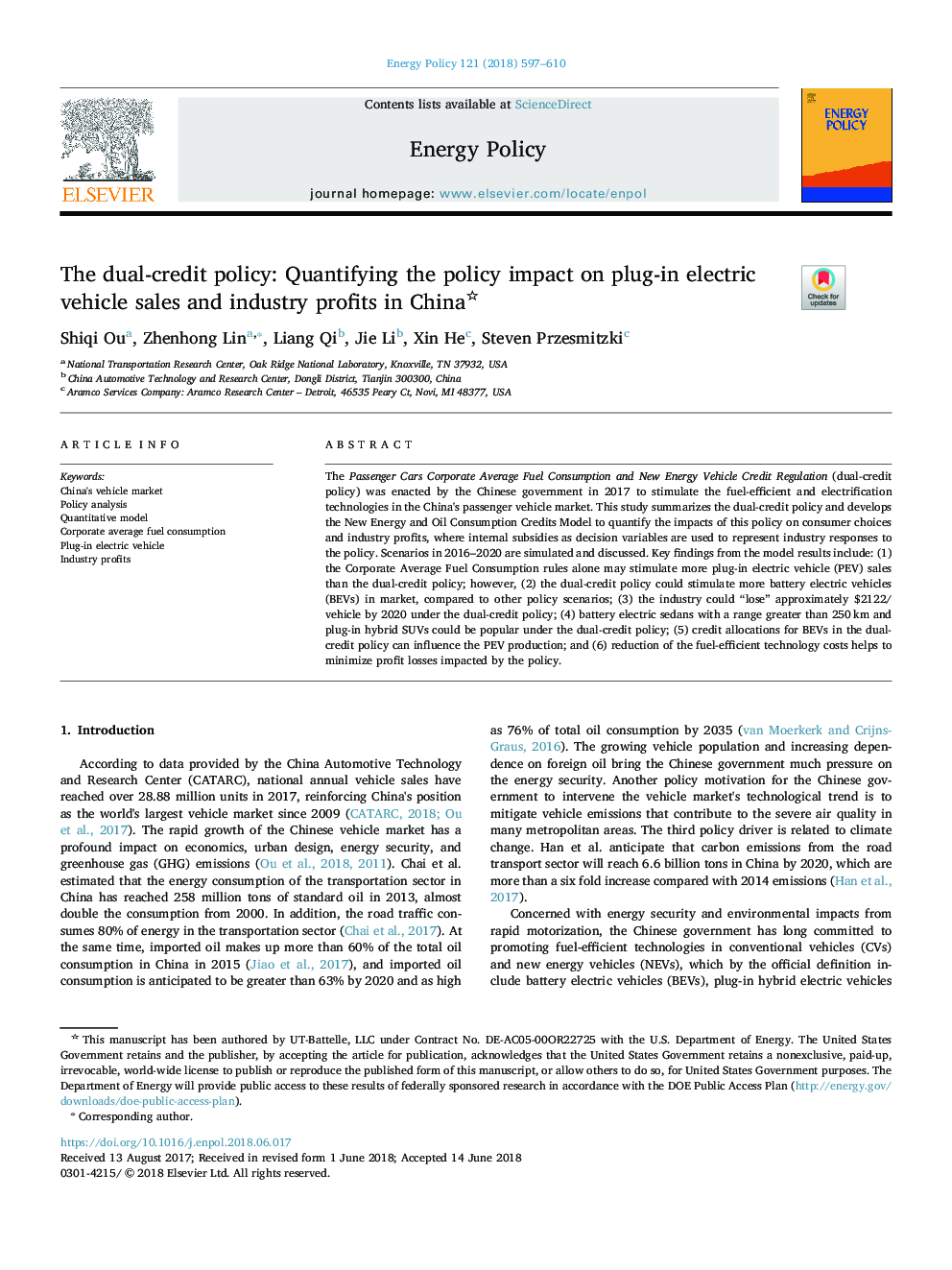| Article ID | Journal | Published Year | Pages | File Type |
|---|---|---|---|---|
| 7396638 | Energy Policy | 2018 | 14 Pages |
Abstract
The Passenger Cars Corporate Average Fuel Consumption and New Energy Vehicle Credit Regulation (dual-credit policy) was enacted by the Chinese government in 2017 to stimulate the fuel-efficient and electrification technologies in the China's passenger vehicle market. This study summarizes the dual-credit policy and develops the New Energy and Oil Consumption Credits Model to quantify the impacts of this policy on consumer choices and industry profits, where internal subsidies as decision variables are used to represent industry responses to the policy. Scenarios in 2016-2020 are simulated and discussed. Key findings from the model results include: (1) the Corporate Average Fuel Consumption rules alone may stimulate more plug-in electric vehicle (PEV) sales than the dual-credit policy; however, (2) the dual-credit policy could stimulate more battery electric vehicles (BEVs) in market, compared to other policy scenarios; (3) the industry could “lose” approximately $2122/vehicle by 2020 under the dual-credit policy; (4) battery electric sedans with a range greater than 250â¯km and plug-in hybrid SUVs could be popular under the dual-credit policy; (5) credit allocations for BEVs in the dual-credit policy can influence the PEV production; and (6) reduction of the fuel-efficient technology costs helps to minimize profit losses impacted by the policy.
Related Topics
Physical Sciences and Engineering
Energy
Energy Engineering and Power Technology
Authors
Shiqi Ou, Zhenhong Lin, Liang Qi, Jie Li, Xin He, Steven Przesmitzki,
